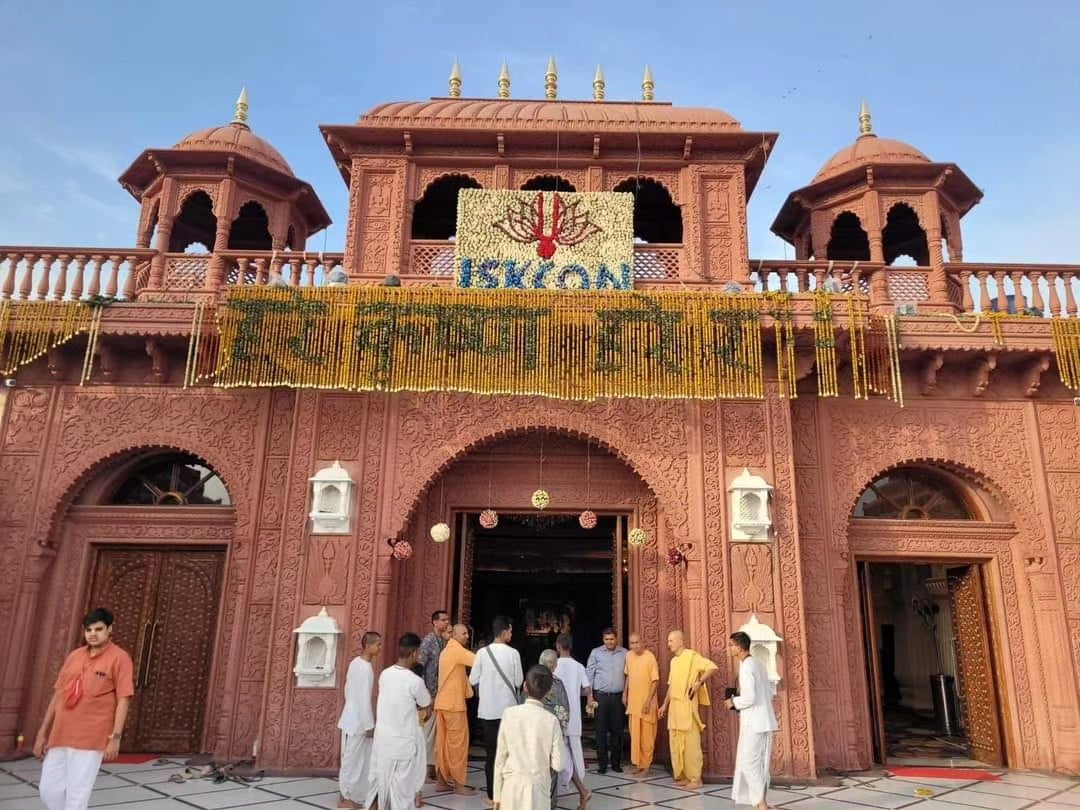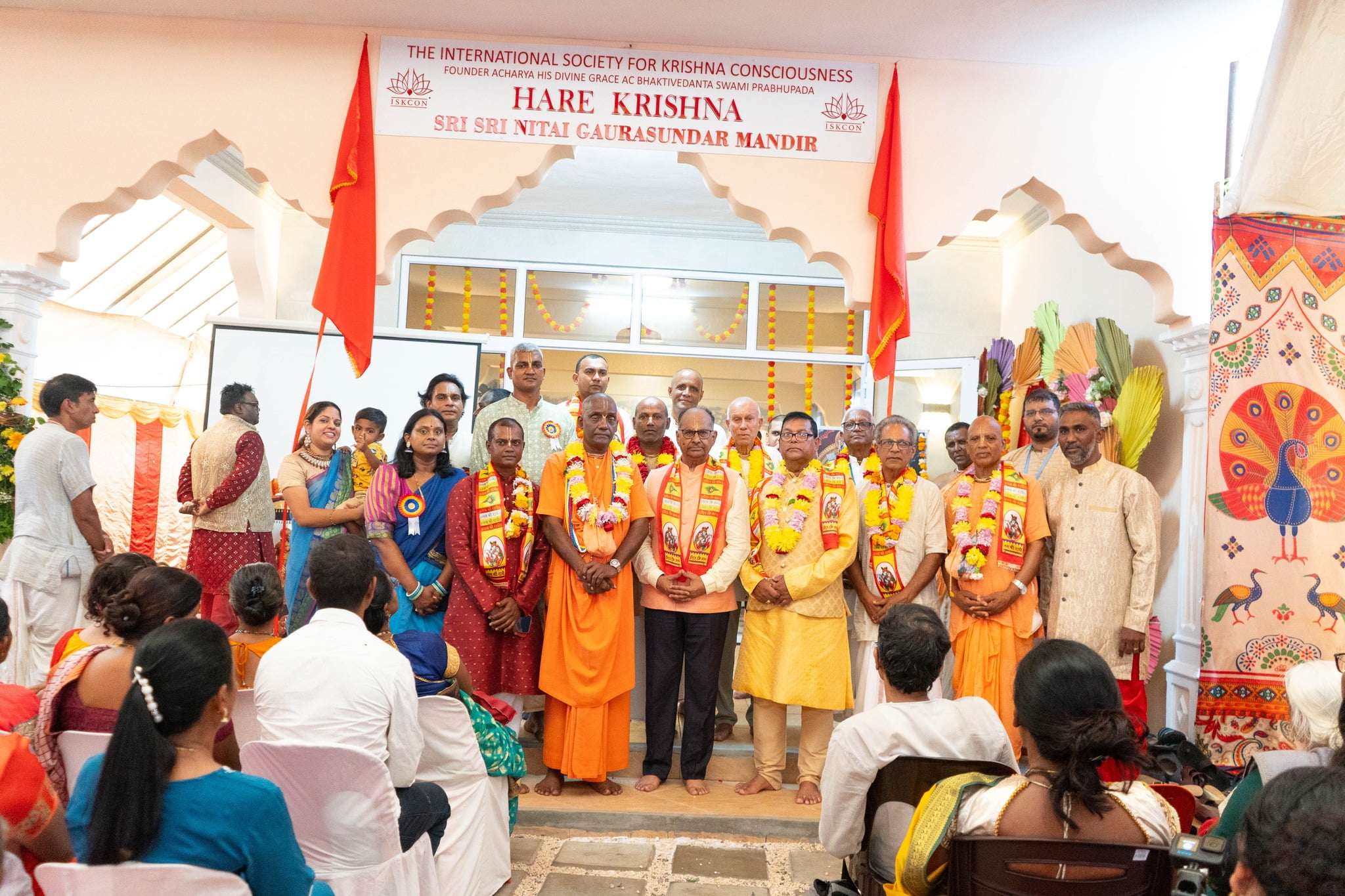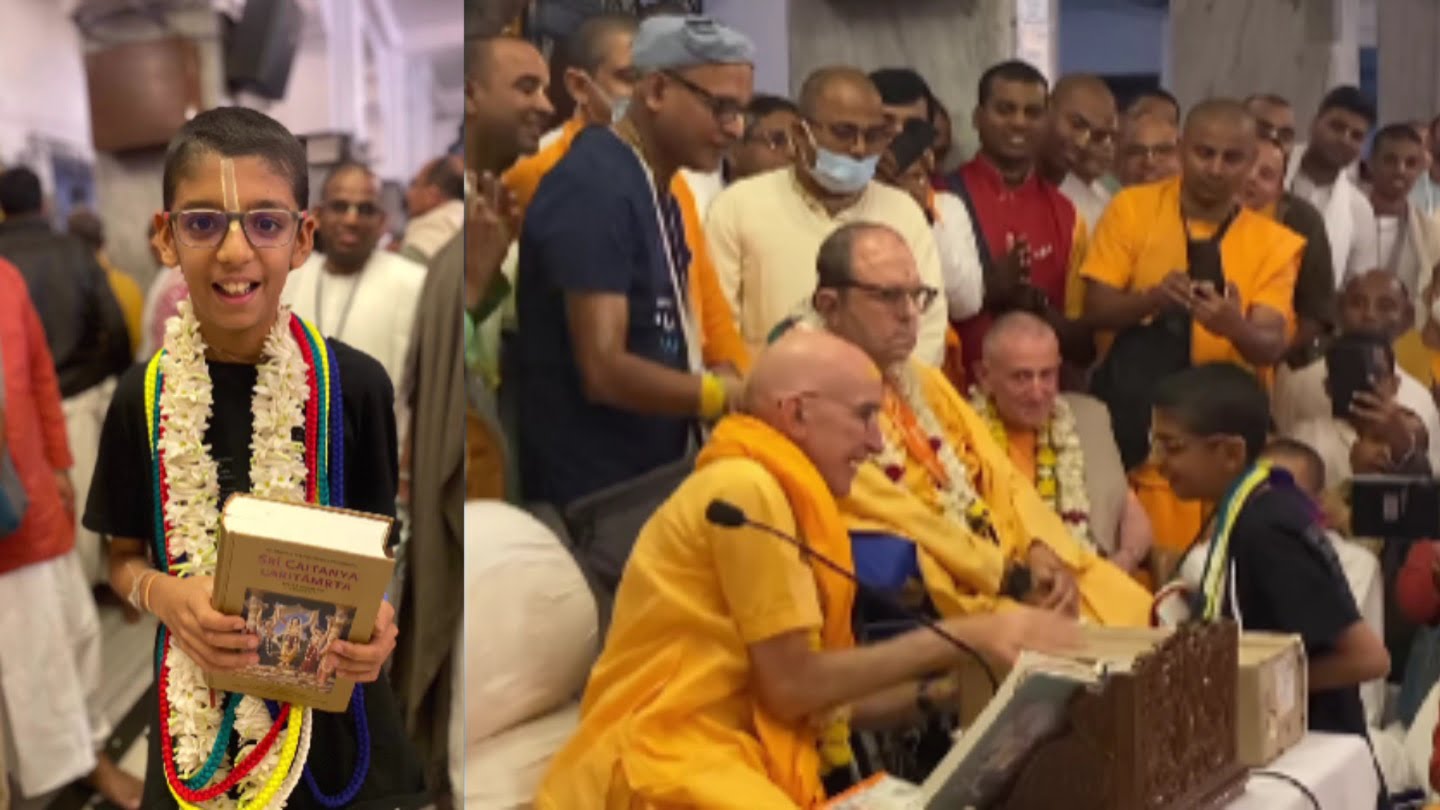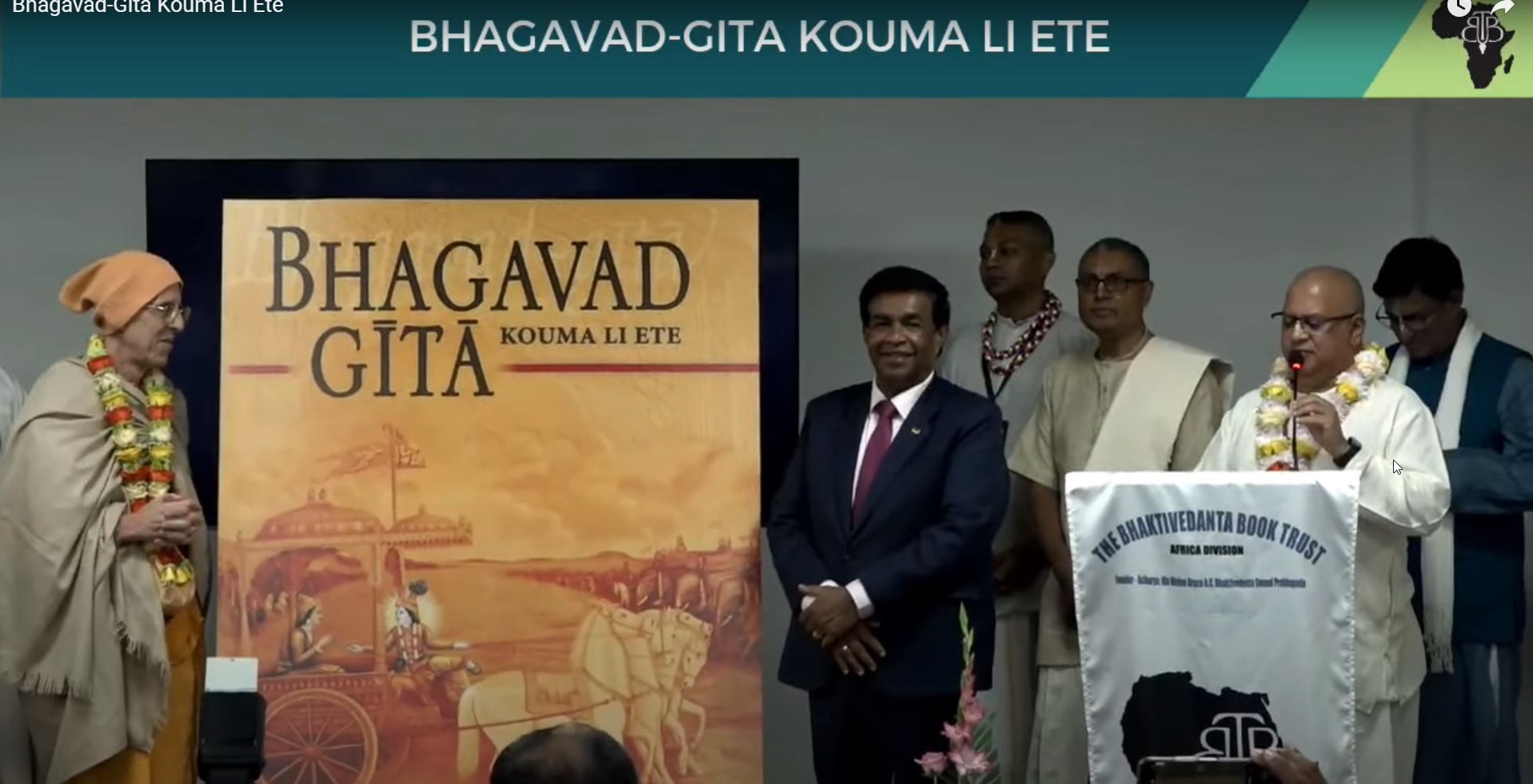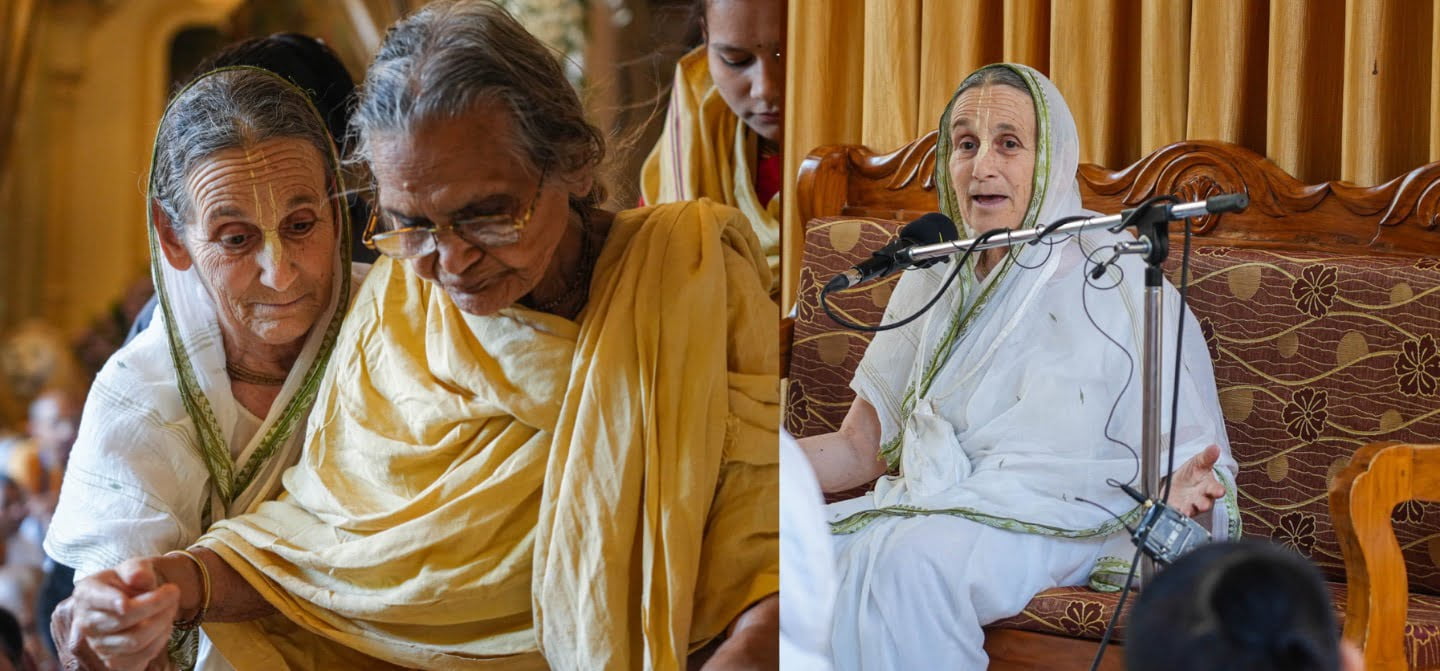20 Years On, Bhaktivedanta Hospital is Still Changing Lives With Spiritual Care
By Madhava Smullen | Mar 03, 2018
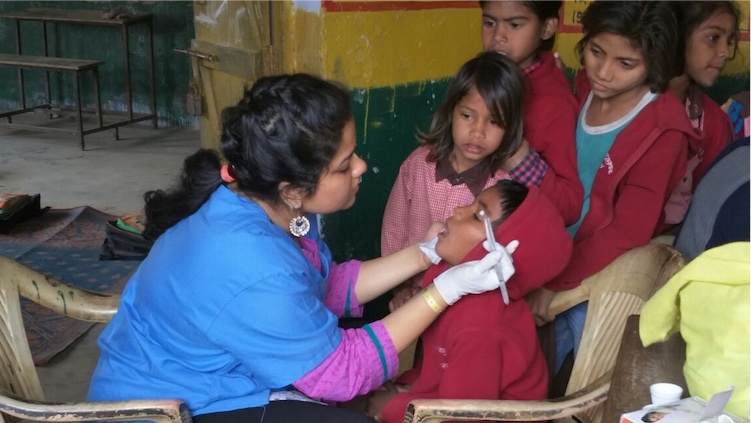
“It is truly an honor to be here this evening,” says spiritual leader Radhanath Swami, his voice echoing out over the Mumbai crowd. “Twenty years ago today, we came together to inaugurate Bhaktivedanta Hospital, not knowing where this journey would lead us.”
That answer is self-evident now, during the 20th anniversary celebrations of the unique hospital inspired by Srila Prabhupada’s teachings. Held on January 11th, the celebrations have drawn a massive attendance of three thousand hospital staff, doctors, managers and their families. And they are being held on land where a major extension is set to be built.
But back in 1991, Bhaktivedanta Hospital was just a dream in the hearts of five young medical graduates, who had become devotees while in medical college – Madhavananda Das, Visvarupa Das, Giriraj Das, Dwarkadish Das, and Vaishnavananda Das. The group wanted to provide holistic care with a Krishna conscious ethos to as many people as possible.
They began by taking medical camps to various areas in and around Maharashtra, serving underprivileged people who had no access to modern medical care. Eventually they started the tiny seven-bed “Bhaktivedanta Clinic” on Mira Road, a distant suburb of Thane, near Mumbai.
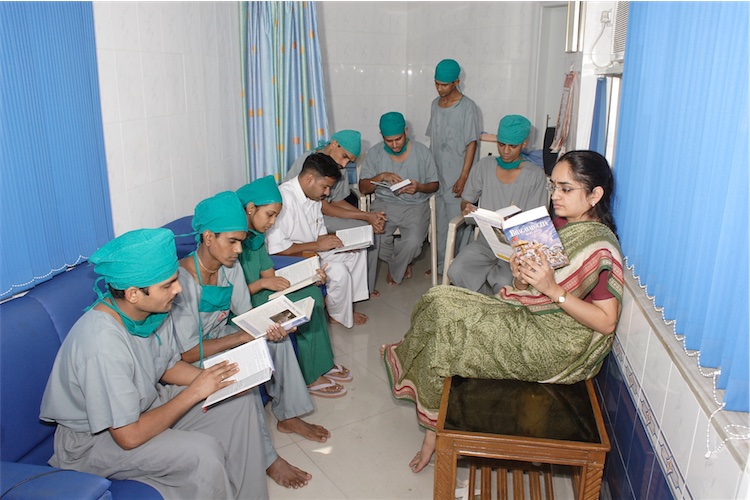
Medical staff study up on the Bhagavad-gita As It Is
Today, that clinic has grown into a state-of-the-art 210-bed hospital with 1,000 devotee staff. The hospital has six modern operation theaters, with a full-fledged heart center for angiography, angioplasty, and open-heart surgeries. The hospital sees around 250,000 outpatients per year and admits some 20,000 inpatients both from India and abroad.
As if that isn’t enough, Bhaktivedanta Hospital has twelve satellite centers – most of them in Maharashtra, with a full hospice in Lord Krishna’s hometown of Vrindavana, and an eye hospital in Srimati Radharani’s birthplace Varshana.
The hospitals are holistic in two ways. While they predominantly practice allopathy, they provide alternative therapies for patients such as homeopathy, Ayurveda, naturopathy, yoga therapy and acupuncture too. They are also holistic in the sense that they care for the patient’s body, mind and soul.
Spiritual care, the most unique element of Bhaktivedanta Hospital, plays a large part in this. “In other hospitals, spiritual care is generally restricted to those who are terminally ill,” says Director Madhavananda Das. “But in ours, practically every patient will get spiritual care in some form.”
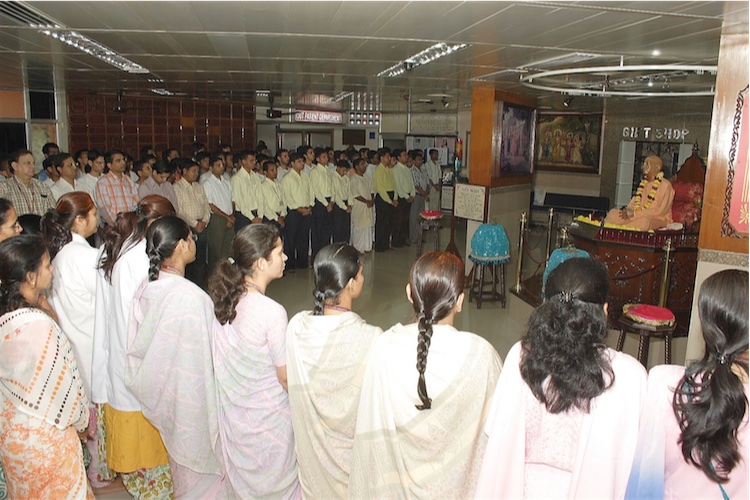
The hospital staff all gather to pray to Srila Prabhupada every morning
At Bhaktivedanta Hospital, each patient is allocated a spiritual care counselor, who develops a friendship with them so that they have someone to talk to for both spiritual and emotional support whenever they need. Like doctor assessment forms in other hospitals, spiritual assessment forms are filled out every day at Bhaktivedanta Hospital.
Every evening, a small ratha, or cart, carrying Deities of Jagannath, Baladeva and Subhadra visits each patient’s bedside. The patient then gets to offer Them flowers and incense, or a ghee lamp during the Kartik month, and also receives Their prasad.
In addition, an atmosphere of “sattva guna,” or “the mode of goodness,” is created in the hospital through cleanliness, Krishna conscious pictures everywhere, the smell of incense and kirtan piped through speakers 24 hours a day.
This, Madhavananda says, creates a sense of comfort and trust, and often sees patients recover at Bhaktivedanta Hospital when their condition was not improving elsewhere. Many ISKCON devotees and others travel long distances across the world to be treated at Bhaktivedanta Hospital for this reason.
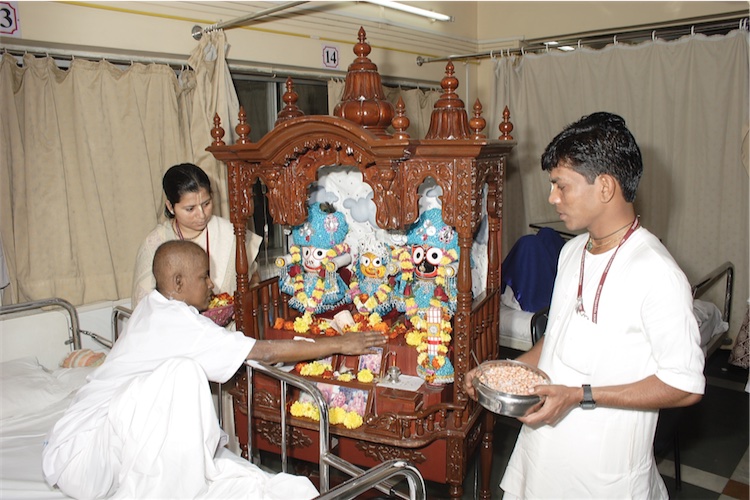
Lord Jagannath comes to visit each patient every evening
Critical patients, meanwhile are brought into the hospital’s own Jagannath temple room, where staff pray, do kirtan or read the Bhagavad-gita with them. With terminal patients, medical staff read and chant the Holy Names for them, encourage their relatives to carry out “six loving exchanges,” and at the last moment give them Ganga water and Tulasi leaves.
For patients of different faiths, chaplains from their own tradition are brought in to read the Bible or Koran and conduct other appropriate care.
“Often, however, our experience is that a dying man doesn’t have any religion,” says Madhavananda. “So they want every possible good thing, and will ask to hear the Gita as well as their religious text, and kirtan as well as their prayers.”
Bhaktivedanta Hospital takes its approach very seriously, and has built a whole research department around spiritual care, with research papers regularly published in international journals.
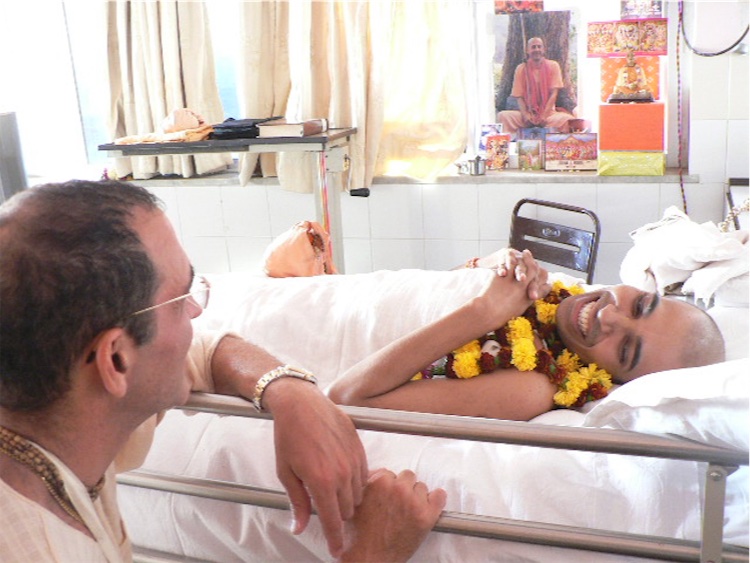
Visiting a devotee’s bedside, with its own altar
Interestingly, it’s not only the patients that get spiritual care at Bhaktivedanta Hospital. The staff also gather daily for prayers, and once a week in the temple room for a spiritual program.
Outreach is a major concern, too. Patients who have been discharged are invited back for medical and spiritual seminars, while free clinics are held for tribals and poor people within a 100 kilometer radius.
Perhaps most notable is the famous eye camp held in Varshana once a year during January/February. Doctors from Bhaktivedanta Hospital and volunteers from other medical establishments provide cataract surgery and medicine for free to around 1,000 underprivileged Brijabasis every year. There’s also a 10-day dental camp for dentures, tooth extractions, and more. And the full-time satellite center in Varshana provides all-round medical care throughout the year, free of cost to ninety per cent of patients. Altogether, nearly 5,000 Brijabasis receive free care from Bhaktivedanta Hospital every year.
So what now, after twenty years of care for the body, mind, and soul? Well, Bhaktivedanta Hospital will soon open an expansion at its main Mira Road location, which will have 100 more beds and be equipped to the latest medical standards.
The hospital will also soon receive post graduate medical college status, meaning that hundreds of new doctors will be trained in the Bhaktivedanta Hospital spiritual ethos.
Those who decide to take up employment at Bhaktivedanta Hospital, Madhavananda promises, will experience deep fulfillment of both their material and spiritual aspirations.
“It’s wonderful to work here,” he says. “We may go through the same ordeals and issues that any other job has. But that is all mitigated because you are working in a perfect spiritual atmosphere, with Srila Prabhupada at the center, and Jagannath, Baladeva and Subhadra worshipped in Their own temple in the hospital every day.”



